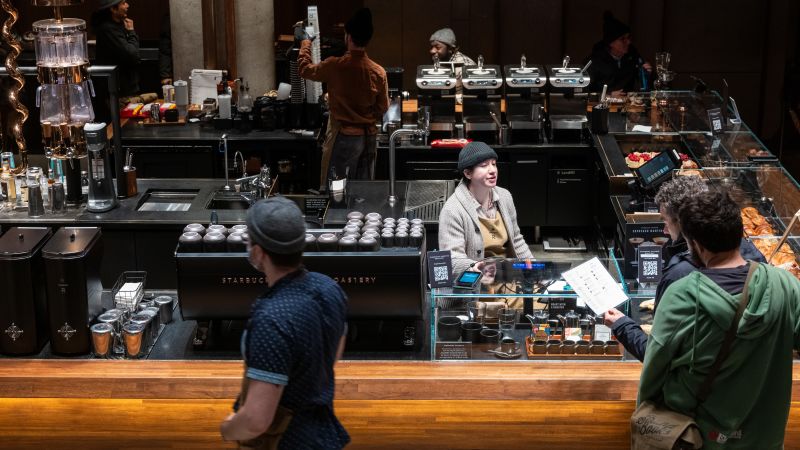The restaurant industry in the United States is facing challenges as consumers continue to tighten their budgets amidst inflation and economic uncertainty. Starbucks reported a decline in same-store sales, with customers spending more cautiously and less frequently. This trend is reflected in other companies, as consumers are grappling with high interest rates, sticky inflation, and the depletion of pandemic-era savings. Companies are now stepping up their efforts to win customer dollars by introducing new products and upgrades to attract new customers and encourage existing customers to spend more.
Consumers have turned to eating at home in order to save money, resulting in a shift in consumer behavior that has impacted the balance sheets of restaurants like McDonald’s. Lower-income customers are tightening their budgets, leading to a decrease in sales for restaurants like Olive Garden. However, higher-income customers continue to spend, helping to prop up the economy. Companies are recognizing the need to adapt to changing consumer trends and are working to appeal to a wider customer base to maintain sales and profitability.
In a separate development, the founder and CEO of a leading American oil producer, Pioneer Natural Resources, has been accused of attempting to collude with OPEC and its allies to inflate oil prices. The Federal Trade Commission has alleged that Scott Sheffield exchanged messages with OPEC officials to align oil production in Texas with that of OPEC and OPEC+, potentially harming US households and businesses. US oil production is intended to be determined by the free market, and any attempts to manipulate prices could have far-reaching consequences.
Despite these challenges, the US job market has been strong in recent years, with April’s job report expected to reflect continued growth. Economists are forecasting that employers added 232,500 jobs in April, slightly down from the previous month. However, this would mark the 40th consecutive month of employment expansion and the 27th month with the jobless rate staying below 4%. While some economists anticipate a gradual slowdown in the labor market due to high interest rates, the overall outlook for the US job market remains positive.
Overall, companies in the restaurant industry are facing challenges as consumers tighten their budgets and spending habits change. Efforts to attract customers through new products and upgrades are underway to offset the impact of inflation and economic uncertainty. In the oil industry, allegations of collusion with OPEC raise concerns about potential price manipulation and its impact on US households and businesses. Despite these challenges, the US job market continues to show strength, with April’s jobs report expected to reflect continued growth and low unemployment rates. Adaptation to changing consumer trends and market conditions will be key for companies to navigate these challenges successfully.


